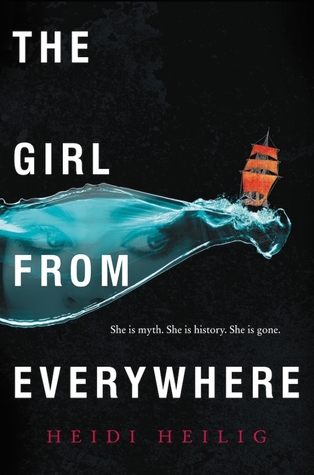Since it's summer, and I'm currently obsessed with all things beach/ocean-related, I thought I'd do a post about my favorite young adult fiction summer reads. To clarify: These books don't necessarily take place during the summer, although some of them do. As long as they take place in the summer or are set at the beach/on the ocean, I'm including them on this list.
The Siren by Kiera Cass
I am obsessed with all things mermaids right now. This book is just beautiful, from the cover to the writing.
Along for the Ride by Sarah Dessen
I can't have a summer reads list without including Sarah Dessen. A lot of her books are set in the summer and/or at the beach, and while this isn't my favorite Sarah Dessen novel, it's my favorite Sarah Dessen novel that takes place both during the summer and at the beach.
The Girl From Everywhere by Heidi Heilig
I surprised myself with this one. I don't usually read fantasy, but I loved the cover and thought the story sounded good, so I decided to give it a try. The Girl From Everywhere will probably end up on my list of favorite books from this year. What I really love about it is that it can easily be a standalone, but it actually is the first book in a series. Initially, I wasn't too excited about that, but now that the cover of the second book, The Ship Beyond Time, has been revealed, I can't wait to get my hands on it. Just look at these covers (note: both images are from Goodreads)!
Moonglass by Jessi Kirby
I also can't have a summer reads list without including something by Jessi Kirby. Moonglass is her first novel, and it is so, so wonderful. Crystal Cove is a beautiful setting, both in the book and in real life (confession: I went there just because it's the setting of this book). I've read it three times, and I fall more in love with Crystal Cove each time I read Moonglass.
The Summer of Chasing Mermaids by Sarah Ockler
Reason number one why I love this book: diversity! The narrator is from the Caribbean. Reason number two why I love this book: It's set in a beach town. I love books set in beach towns. Reason number three why I love it: The story is wonderful. It's hard to go wrong with Sarah Ockler, and this is probably my favorite book by her.
What are you favorite books that are set during the summer or that have a beach setting? Let me know in the comments!







